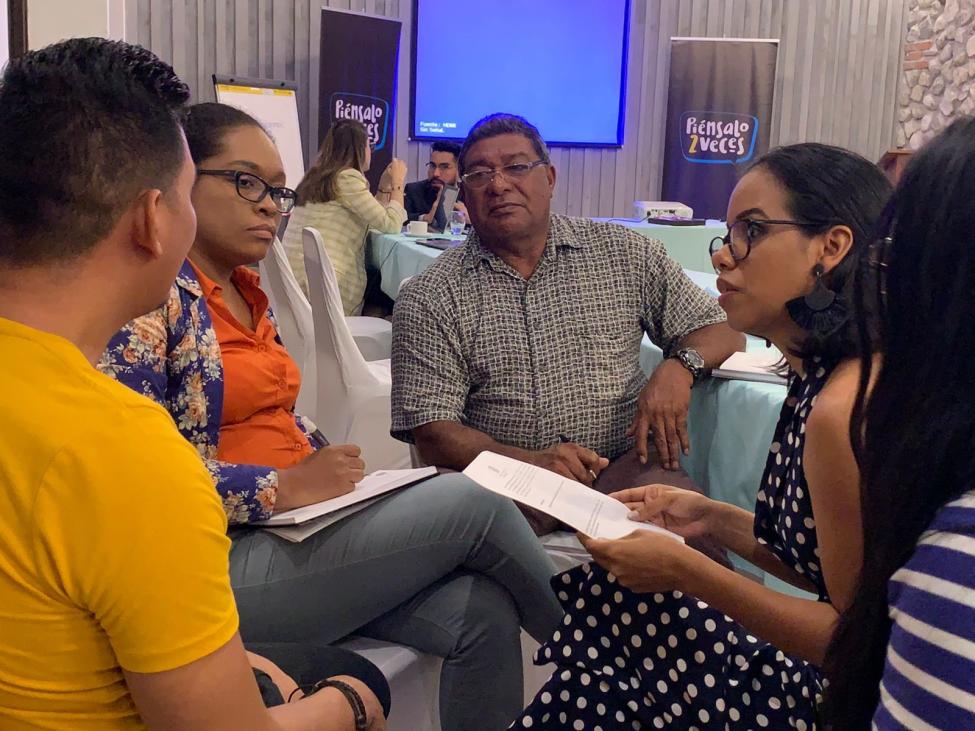Regional study identifies opportunities for managing labour migration flows in coffee production
Referral to institutional services; orientation and assistance for migratory procedures; voluntary return; temporary shelter; feeding and accompaniment of vulnerable cases.
The International Organization for Migration (IOM) has developed a series of training processes focused on providing tools for ethical coverage of migration based on international law and evidence. A total of 162 professionals from national and local print media, television, radio and digital media, as well as communicators from public institutions in Mexico, Guatemala, Honduras, El Salvador, Costa Rica and Panama were trained.

Officials from 7 countries were trained on protection and assistance for migrants vulnerable to violence, exploitation and abuse. The activity was attended by representatives of migration institutes or directorates, consulates and entities responsible for the shelter and protection systems of Mexico, Guatemala, Honduras, El Salvador, the Dominican Republic, Panama and Costa Rica.
It provides differentiated attention, migratory information and referrals to institutions according to the needs of each case.
It provides differentiated attention, migratory information and referrals to institutions according to the needs of each case.
It provides differentiated attention, migratory information and referrals to institutions according to the needs of each case.
Provides differentiated attention, migratory information and reference to institutions according to the needs of each case.
An IOM study found 57 active regularization initiatives in Belize, Costa Rica, El Salvador, Guatemala, Honduras, Mexico, Panama and the Dominican Republic. Of these, 24 had been created explicitly for people in irregular status, while the rest benefited them tangentially by allowing them to present their documentation. Despite these advances, the study identified four major challenges that must be addressed in the coming years to ensure better migration management in the region.
Government institutions in Mexico and Guatemala presented a campaign conducted in collaboration with the International Organization for Migration (IOM) to boost the use of the Border Worker Visitor Card (TVTF), which has served to regularize more than 50,000 Guatemalans in southern Mexico since 2016, but whose use has declined during the COVID-19 pandemic years.